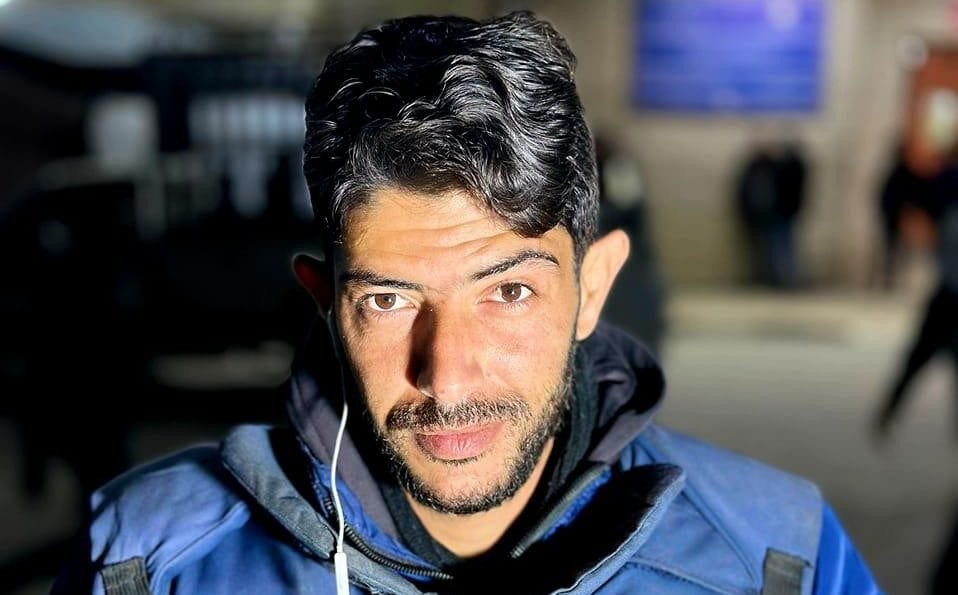BBC journalist controversy ignites fresh debates on media impartiality. Samer Elzaenen returns to BBC Arabic screens. He accuses Israel of weaponizing starvation against Palestinians. This marks another chapter in ongoing scrutiny. Critics question the broadcaster’s vetting process. Meanwhile, defenders stress journalistic freedom.
Background of the Allegations
Samer Elzaenen faces backlash for past statements. He allegedly called for extreme actions against Jews. Reports link him to inflammatory social media posts. These date back over a decade. However, BBC Arabic features him repeatedly.
The latest report focuses on Gaza’s humanitarian crisis. Elzaenen claims Israel deliberately restricts food supplies. He describes it as a calculated strategy. Consequently, global observers take note. Yet, his history raises impartiality concerns.
Moreover, similar incidents plagued BBC before. Other contributors faced antisemitism accusations. Therefore, this recurrence alarms many viewers. Public trust hangs in the balance.
Details of Recent Broadcast
In the BBC Arabic segment, Elzaenen reports from Gaza. He highlights severe food shortages. “Starvation spreads like wildfire,” he states. Furthermore, he points to blocked aid convoys. Israel denies these claims firmly.
The report airs amid escalating tensions. Palestinians suffer acute hunger, he argues. Meanwhile, UN officials echo similar warnings. However, Elzaenen’s involvement stirs controversy. Critics demand his immediate removal.
Additionally, the broadcast reaches millions across Arabic-speaking regions. It shapes perceptions of the conflict. Therefore, accuracy becomes paramount. Yet, personal biases could taint the narrative.
Historical Social Media Posts
Old Facebook entries resurface amid the uproar. Elzaenen allegedly praised attacks on Israeli civilians. He labeled perpetrators as heroes. Moreover, he used inflammatory language against Jews. These posts span from 2011 to 2022.
One message reportedly references historical atrocities. It calls for similar treatment of Jews. Another suggests violence fixes problems. Consequently, Jewish communities express outrage. They label it hate speech.
Furthermore, Elzaenen endorsed Hamas actions post-October 7. He called fighters “resistance heroes.” However, BBC distances itself from these views. The broadcaster claims no endorsement of personal opinions.
BBC’s Response and Policies
BBC officials address the BBC journalist controversy swiftly. They state Elzaenen works as a freelancer. “He is not a staff member,” a spokesperson clarifies. Moreover, they condemn all forms of antisemitism. Strict guidelines govern contributor conduct.
An internal review launches immediately. It examines vetting procedures for freelancers. Additionally, BBC commits to impartial reporting. “We take these allegations seriously,” the statement reads.
However, critics find this insufficient. They demand a full independent investigation. Jewish advocacy groups lead the charge. Therefore, pressure mounts on BBC leadership.
Impact on Media Credibility
This BBC journalist controversy erodes public confidence. Viewers question the network’s neutrality. Especially in Middle East coverage. Moreover, Arabic service faces particular scrutiny. Accusations of bias persist.
Social media amplifies the debate. Hashtags trend worldwide. Furthermore, petitions call for boycotts. Consequently, BBC risks losing diverse audiences. Rebuilding trust requires transparent actions.
Additionally, journalists worldwide watch closely. The case sets precedents for freelancer management. Ethical standards must evolve accordingly.
Broader Context of Gaza Reporting
Gaza’s situation remains dire. UN reports warn of famine risks. Israel maintains security necessities drive restrictions. However, human rights groups disagree. They label it collective punishment.
Elzaenen’s report aligns with these criticisms. He interviews affected families. “Children go days without meals,” one mother shares. Moreover, aid workers corroborate the accounts. Yet, his credibility comes under fire.
Furthermore, international law prohibits starvation as warfare. Experts debate Israel’s compliance. Therefore, accurate reporting becomes crucial. Biased voices complicate the discourse.
Calls for Accountability
Advocacy organizations demand swift action. “BBC must uphold journalistic integrity,” one leader asserts. They urge contributor suspensions during probes. Moreover, training on antisemitism gains traction.
Politicians join the fray. UK lawmakers question BBC funding. Additionally, parliamentary committees schedule hearings. Consequently, the BBC journalist controversy reaches governmental levels.
However, supporters defend Elzaenen. They argue context matters in conflict zones. “Reporters face immense pressures,” a colleague notes. Therefore, balanced views emerge.
Similar Cases in BBC History
BBC faced comparable issues before. Other Arabic contributors drew criticism. For instance, one praised terrorist acts. Another used dehumanizing language. Moreover, investigations followed each time.
The pattern suggests systemic problems. Freelancer oversight needs strengthening. Furthermore, diversity in hiring brings challenges. Yet, it enriches perspectives when managed well.
Additionally, BBC’s global reach amplifies impacts. Mistakes resonate far beyond UK borders. Therefore, reforms must address international sensitivities.
Public Reactions and Social Media Storm
Online users express mixed sentiments. Some praise Elzaenen’s Gaza coverage. “He exposes real suffering,” one tweet reads. Others condemn his past statements. “Hate has no place in journalism,” counters another.
Hashtags like #BBCBias trend rapidly. Moreover, viral videos dissect the controversy. Consequently, debates rage across platforms. Media literacy becomes key in navigating them.
Furthermore, diaspora communities voice concerns. Jewish groups organize protests. Palestinian supporters rally for free speech. Therefore, polarization deepens.
Potential Reforms at BBC
BBC leadership considers policy changes. Enhanced background checks top the list. Moreover, social media monitoring becomes mandatory. Freelancers must disclose past posts.
Additionally, diversity training expands. It covers antisemitism and Islamophobia. Furthermore, external auditors review content. Consequently, impartiality strengthens.
However, implementation takes time. Staff unions push for fair processes. Therefore, balanced reforms emerge gradually.
International Media Standards
This BBC journalist controversy highlights global issues. Other networks face similar dilemmas. For example, CNN dealt with biased reporting claims. Al Jazeera navigates accusations too.
International guidelines emphasize neutrality. Moreover, fact-checking verifies claims. Additionally, diverse teams ensure balanced views. Therefore, best practices evolve collectively.
Furthermore, technology aids monitoring. AI scans for hate speech efficiently. Yet, human judgment remains essential.
Lessons for Conflict Journalism
Reporting wars demands utmost care. Journalists balance facts with humanity. Moreover, personal views must stay separate. This case underscores that principle.
Additionally, audiences deserve transparent media. Disclosures build trust effectively. Furthermore, corrections address errors promptly. Consequently, credibility endures.
However, dangers persist in conflict zones. Reporters risk lives daily. Therefore, support systems prove vital.
Wrapping Up the Debate
The BBC journalist controversy surrounding Samer Elzaenen persists. His Gaza starvation report draws praise and criticism. Past statements fuel the fire. BBC must navigate carefully ahead. Ultimately, impartial journalism serves everyone best.





